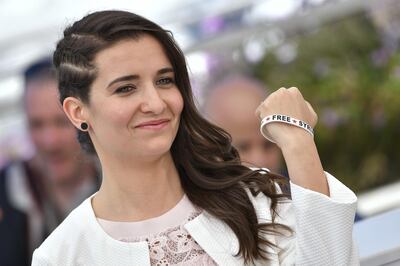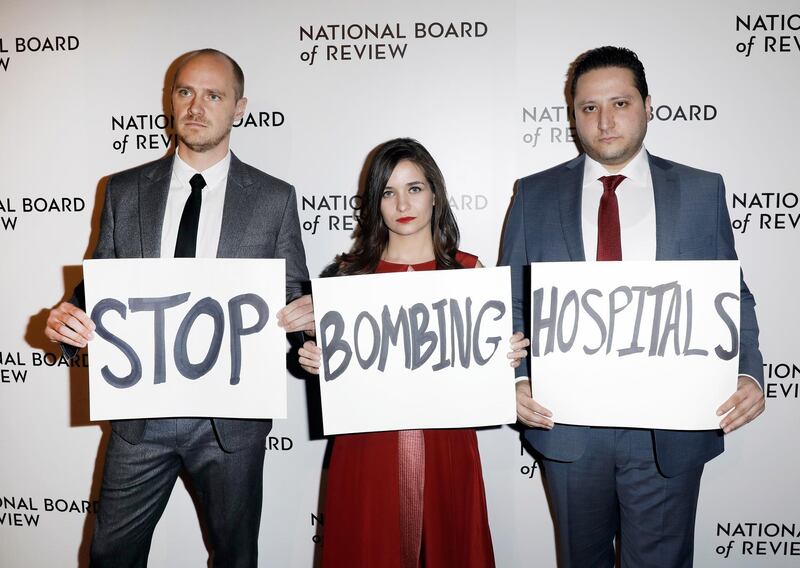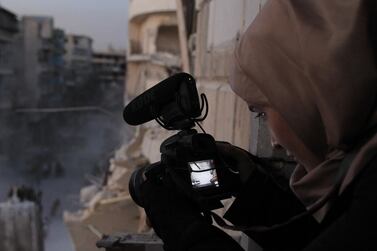This is for Sama. She is a little girl I have never met but whose story touched me and if you see the Syrian documentary which bears her name, it will move you too. For Sama was filmed and directed by Waad Al Kateab – Sama's mother – and co-director Edward Watts, in co-operation with British TV Channel 4. The film opens with a scene as compelling as any multi-million dollar blockbuster, an attack on a hospital in Aleppo and a mother crying out for her baby as an explosion shakes the building while dust and smoke blur the camera lens. Waad Al Kateab then tells her own story and that of her husband, a doctor who treats the wounded as Russian bombs drop and Syrian government forces advance. By the end of the film Aleppo, famous as a great trading city for centuries, featuring even in Shakespeare's Macbeth, is reduced to dehumanised wreckage out of a science fiction dystopia.
The film has been nominated in the Best Documentary category for the Oscars and I have watched it along with contenders for the British equivalent, the Baftas. In some ways it is as grim as you would suspect. In others, it reminds us of our common humanity – a mother’s love for her new born child, the singing, laughter and macabre jokes people use to keep their spirits up while people try to kill them. In one scene children have fun painting a bus, or rather the skeleton of a bus destroyed in the bombing. The unspoken question is this: what kind of people mercilessly drop bombs and fire missiles on innocent children?
The pre-war population of Syria was 22 million. The United Nations estimates that more than 13 million now are "displaced" people requiring humanitarian assistance. Syrians account for one in five of the 65 million displaced people worldwide. The genius of the film is that statistics are just numbers, but Sama is a smiling face with her own story. That's what filmmaking and art are for – to humanise and put a face on happiness and suffering and touch us the way statistics can never do. Let's be honest, 13 million displaced Syrians have often been ignored across the world, but one child's smiling face surrounded by unimaginable horror cannot be forgotten.
There is some good news in all this. Whether For Sama wins an Oscar, Waad Al Kateab has already won recognition. At a time when the Oscars and other film awards are criticised for lack of diversity, Arab voices are being heard a bit more than before. Last year Nadine Labaki became the first Arab woman to be nominated at the Oscars for her feature film Capernaum. Two Tunisian films have been nominated in the Oscars short film category. If you get the chance, go and see a South Korean film, Parasite, the ingenious and mostly comic tale of a family of small time Korean hustlers who wheedle their way into a rich family's house and take over.
Even so, many of the top prizes, acting and directing slots for the big Oscar and Bafta films remain a white Western male preserve – Sam Mendes' 1917, Tarantino's Once Upon a Time In Hollywood, Joker, and Scorsese's epic The Irishman among them. But there is also Bombshell, based on the real life story of Fox News, its boss Roger Ailes and his harassment of presenter Megyn Kelly and other women. Three women are in the key roles, and one co-producer was Charlize Theron who also plays the lead.
Two weeks before filming one of the film’s backers dropped out and Theron – while preparing for an extremely challenging acting role – found herself constantly on the telephone trying to save the production by finding a few more millions in cash. She did.

Progress for diversity in Hollywood and big box office films, in other words, can be three steps forward and two steps back. But there are a few simple rules. First, audiences are diverse and movies are watched worldwide. That means filmmakers who provide only a narrow view are not only missing out on explaining our complicated world, they may also be missing out on international box office success.
Second, audiences can be challenged by ideas that at first may not be what they think they want. A film about the Syrian War, or a funny little movie called Jojo Rabbit about a ten year old boy who joins the Hitler Youth and has conversations with Adolf Hitler may in their very different ways seem a hard sell, but both are testaments to the inventiveness of filmmakers.
Above all, For Sama reminds us, as we sit in the comfort of a movie theatre eating popcorn, that whatever our differences in language or culture, human beings all want the same basic things: to see their children grow up in peace and security to pursue their hopes and dreams. Thank you, Waad Al Kateab.
Gavin Esler is a journalist, author and presenter






